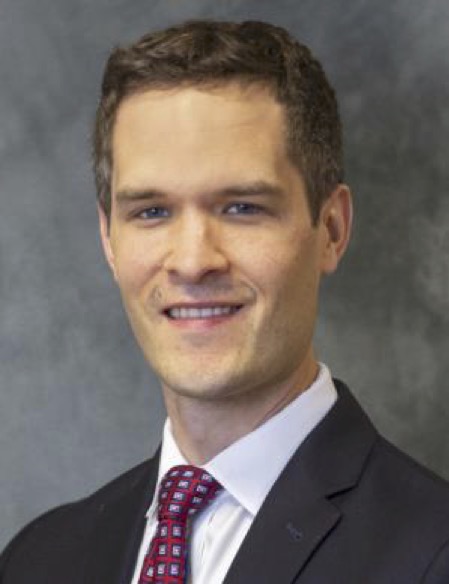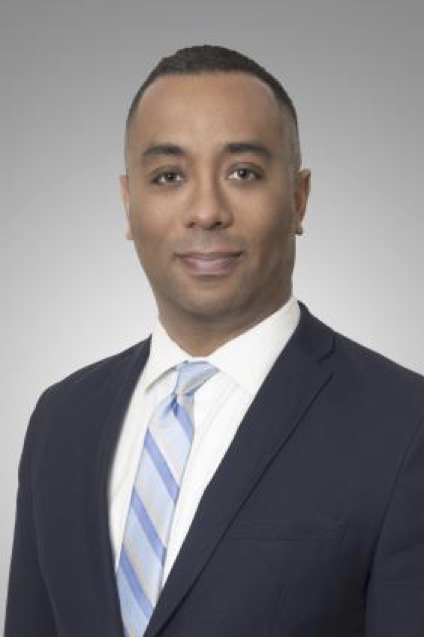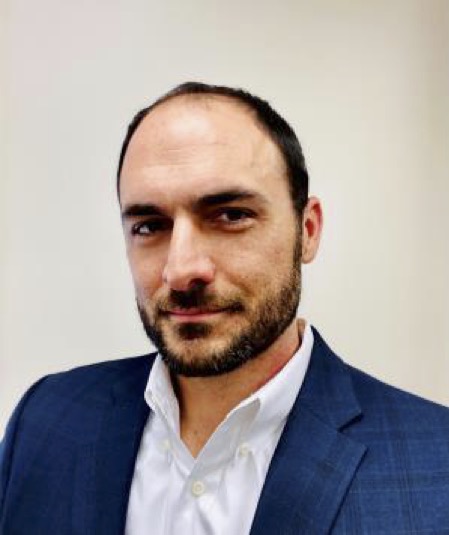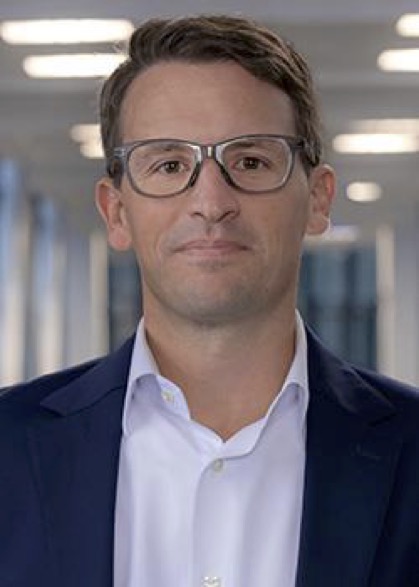 C-suite seat might be neat, but not always completely necessary
C-suite seat might be neat, but not always completely necessary
By Rick Dana Barlow
If there's one key difference between supply chain operations within healthcare provider organizations and supply chain operations everywhere else, it's this: More executives, leaders, managers and professionals in healthcare provider settings strive for influence, respect and seats in the C-suite than those in other industries.
Granted, supply chain in those other industries already may have influence, respect and seats in the C-suite or their economically based revenue/profit-driven service keeps them too occupied to care versus those in the patient-care-based mission-driven service within hospitals and other healthcare organizations.
[Editor's Note: For other differences and similarities among supply chain operations across industries, visit the "On Deck" section of Leaders & Luminaries Edition 6 from last year]
The newest and next generation of supply chain leaders — Future Famers — acknowledge the desire and need for supply chain to have a seat in the C-suite but recognize that the function should be entitled and the position earned.

"This really comes down to organizational culture," said Corey Schmidt, CMRP, MBA, Future Famers Class of 2024, Assistant Director, SHS Operations & Spend Management Integration, The University of Kansas Health System, Kansas City, KS. "If the organization has a very layered structure, they may need that C-suite presence where an organization with fewer layers may empower their mid-level leaders to execute. At the end of the day, is supply chain executing at a high level? If not, what does the organization need to get there?"

Kate Polczynski, MBA, CMRP, Future Famers Class of 2016, Vice President, Enterprise Supply Chain, Geisinger, Danville, PA, invokes a pinch of pop culture to emphasize her point with a touch of whimsy.
"As the Broadway musical, 'Hamilton,' suggests — to get things done, you want to be in the room where decisions are made," she noted. "In a complex healthcare environment with so many challenges to tackle, it is critical that there is a consistent advocate for the needs of supply chain amongst the C-suite leadership to continue driving progress."
In an apt metaphor from the 2024 Summer Olympic Games in Paris, Ryan Burke, Future Famers Class of 2022, Vice President, Strategic Sourcing, Pandion Optimization Alliance, Fairport, NY, refers to a relay race among generations.

"Our predecessors worked tirelessly to elevate the role of materials management leader with an office in the basement next to the morgue to supply chain leader with progressive organizations appointing chief supply chain officers to oversee operations and strategy for the enterprise. The healthcare supply chain can't afford to take a step backward now. It is incumbent on future leaders to take the baton from our mentors and continue the race," he urged.

"Supply chain leaders who have a direct line of communication with their executive leadership team and have a seat at the decision- making table are well-equipped to drive necessary change across the organization," asserted Jessica Hurd, Future Famers Class of 2019, Senior Director, Spend Management, Vizient Inc., Irving, TX. "Having this level of access and influence allows them to effectively collaborate with other departments and drive strategic initiatives. When supply chain leaders have a C-Suite presence, they are able to operate from a more strategic category management perspective. This means they can take a holistic view of the supply chain, looking beyond individual contracts and suppliers, and instead focus on optimizing the overall supply chain ecosystem. This approach allows for more efficient and effective decision-making that aligns with the organization's broader goals and objectives.
"Additionally, having established relationships from top to bottom within the organization enables supply chain leaders to effectively communicate and collaborate with various stakeholders," Hurd continued. "This facilitates cross-functional collaboration, breaks down silos, and promotes alignment across departments. By leveraging these relationships, supply chain leaders can drive change and implement initiatives that have a positive impact on the organization as a whole."

Much depends on how the organization views supply chain and the type of professional needed to lead it, according to Angie Bruns, MHA, Future Famers Class of 2024, Senior Director, Spend Management and Administration, The University of Kansas Health System, Kansas City, KS.
"In most healthcare organizations, medical supply expense is the second highest expense to labor. Our span of influence across internal and external networks is vast," she indicated. "Supply chain is a disruptor and advocate for innovation by continuously researching and providing recommendations to change something for the betterment of our patients or organization. Organizations lean into this leader not only for their innovative nature, but for their financial discipline.
"In today's healthcare landscape, this position is sought after to remain on the cutting edge of innovation for our patients and end-users, but to also balance the economic stewardship for the organization," Bruns continued. "For these reasons, a seat at the table grants a supply chain leader the opportunity to share and influence the organization's strategy as it relates to major operational functions: procurement, sourcing, contracting, etc. I believe the role of this position is to question the status quo, and challenge comfortability in efforts to improve patient care and to help provide fiscal sustainability for an organization. This leader is viewed as an advocate for the entire organization and its patients."

Rachel Anderson, Future Famers Class of 2023, Vice President, Supply Chain, DCH Health, Tuscaloosa, AL, concurs with conviction.
"I believe unequivocally that supply chain should have a seat at the table — in the C-suite," she noted emphatically. "We are at a unique time in history where we've been catapulted from the basement to the boardroom, and we need to seize this opportunity to reevaluate what it means to be a supply chain leader for the organization(s) in which we serve. Our areas of purview are changing, with new roles and responsibilities being added to our plate while still battling global supply disruptions, rising inflation, contractual pressure and workforce issues. No one understands our challenges and our opportunities better than us. Having a seat in the C-suite allows us to propel that vision forward towards a successful future."

Organizations must view the big picture with supply chain against the backdrop of community-based patient care, according to Jack Koczela, Future Famers Class of 2020, Director, Sourcing & Transformation, Supply Chain, Froedtert ThedaCare Health, Milwaukee, WI.
"Supply Chain is a strategic asset to a growing healthcare organization," he noted. "As we consider new care environments, we need to think how this will impact our contracts, our physical assets, our systems, and many other areas that are traditionally under supply chain's span of control."
Chico Manning, MHA, Future Famers Class of 2024, System Vice President, Enterprise Supply Chain, PIH Health, Whittier, CA, maintains and open mind and can see both sides of the issue.
First, Manning emphasizes how crucial it is for the supply chain to have a seat in the C-suite because supply chain management plays a vital role in a company's overall success. He cites five reasons why it matters:
- Strategic Alignment: "Having a supply chain executive in the C-suite ensures that supply chain decisions are aligned with the overall strategic goals of the company. This integration helps optimize operations, reduce costs, and improve efficiency."
- Risk Management: "Supply chain disruptions can significantly impact a company's bottom line. By having a supply chain leader at the executive level, companies can better anticipate, monitor and mitigate risks, ensuring business continuity."
- Customer Satisfaction: "The supply chain directly influences customer satisfaction through factors like on-time delivery, product quality and availability. Having supply chain representation in the C-suite allows for a customer-centric approach to decision-making."
- Innovation and Technology: "With the rapid advancements in technology and automation, having supply chain expertise in the C-suite can drive innovation in processes, systems and digital transformation initiatives that enhance competitiveness."
- Cost Efficiency: "Supply chain costs can constitute a significant portion of a company's expenses. Having a strategic voice in the C-suite can lead to cost-saving opportunities, process improvements and better resource utilization."
C-suite seat more creed than need?
But Manning acknowledges that supply chain might not need a C-suite seat after all.

"While having a supply chain executive in the C-suite has clear benefits, some companies may have unique circumstances where they believe it's not necessary," he said, citing the following examples:
- Outsourced Supply Chain: "If a company outsources the majority of its supply chain functions to third-party logistics providers or manufacturers, they may not see the need for a dedicated supply chain executive in the C-suite as the responsibilities are mostly managed externally."
- Small to Medium Enterprises (SMEs): "In smaller organizations with simpler supply chain structures and operations, the need for a separate C-suite position solely dedicated to the supply chain may not be as pronounced. The responsibilities might be managed by existing executives or departments."
- Industry-Specific Factors: "Certain industries may prioritize other functions in the C-suite over supply chain management. For example, in industries where R&D or marketing play a more critical role in driving competitiveness, supply chain management might take a back seat."
- Cost Considerations: "Some companies may perceive the addition of a supply chain executive in the C-suite as an unnecessary cost, especially if they believe that supply chain functions can be adequately managed at lower leadership levels."
Manning cautions, however, that "while these reasons may make a case for not having a dedicated supply chain executive in the C-suite, it's important to note that supply chain management impacts various aspects of a company's operations, cost structure and competitiveness. Companies should carefully evaluate their unique circumstances and needs to determine whether having a supply chain leader in the C-suite aligns with their strategic objectives and goals."

Eric Tritch, Future Famers Class of 2015, Senior Vice President, Supply Chain & Support Services, and Chief Supply Chain Officer, UChicago Medicine, questions the long-simmering and suffering issue by flipping the perspective.
"This can be a bit of a misnomer, as what is important is that someone in the C-suite has enough of an understanding and appreciation for what supply chain is and what it can do," he countered. "Also, there are a lot of 'C' titles in healthcare, but it means you are close enough to key decisions and [have] influence on strategies and investments that major decisions are not made without considering supply chain's role and impact. These days, supply chain leaders can wear many hats, so whether it is a CSCO or CPO that is in the room and discussion, or if it is a CFO or COO that the supply chain rolls up under, so long as someone really gets it and how supply chain functions need to be considered and involved."

Perhaps the most realistic perspective is one of inherent trust, posits Nate Mickish, Future Famers Class of 2015, Vice President, Strategic Sourcing, Texas Health Resources, and President, OnHand.
"I don't think being in the C-suite matters as much if the supply chain leader has the organization's trust, respect and a high level of influence," he noted. "We're not in the C-suite at THR and yet nearly every major deal now passes through us. If you're credible in your work, trustworthy and curious, people will ask you to be in the room regardless of your title on the org chart. As the late Charlie Munger said about spouses: ''The best way to have a great spouse is to deserve one." This is true here, too. The best way to get the influence you want is to deserve it."
Mickish concludes with a real-world example: "Perhaps the best path to the C-suite for the supply chain professional is the one Tim Cook followed at Apple ..."
[Editor's Note: Here's a useful link at Pressfarm that profiles Cook's career, https://press.farm/how-did-tim-cook-become-apple-ceo/.]